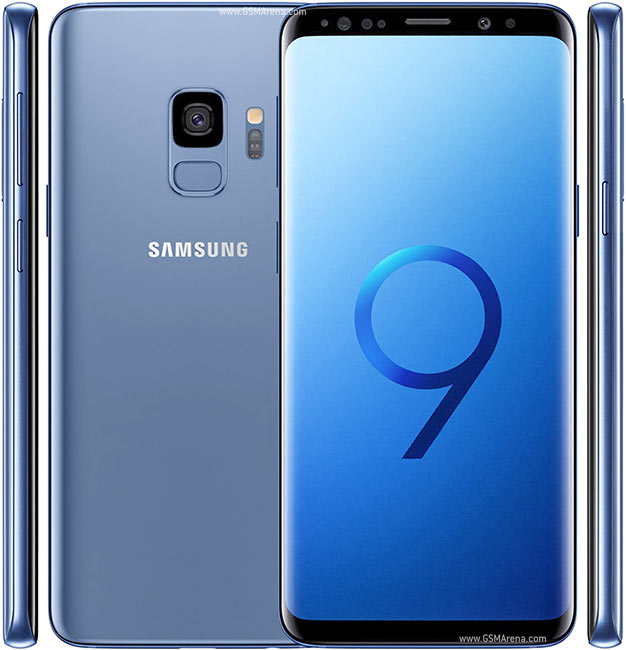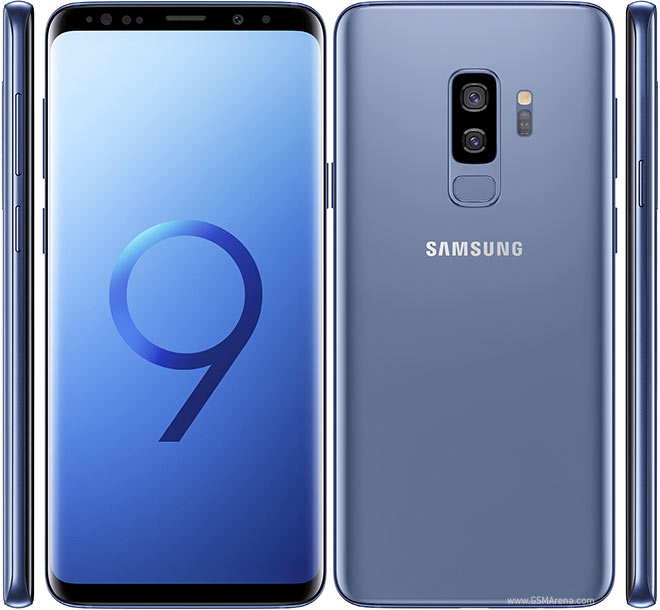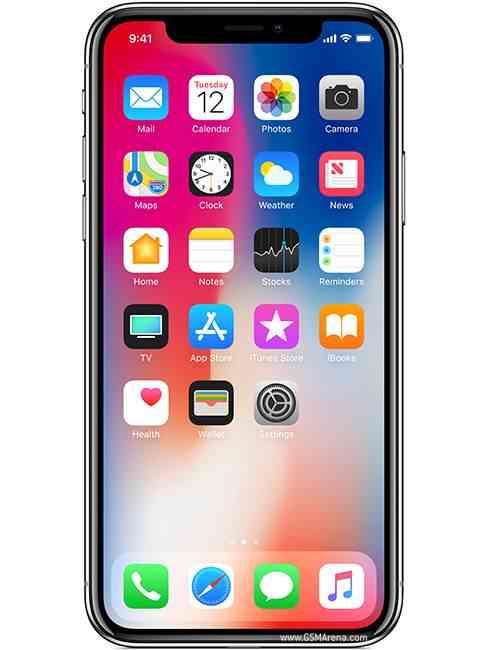Unlike Cozmo, Vector is no toy, and is instead positioned as a home robotic device. Vector adopts capabilities from Cozmo, but his functionality goes above and beyond the tricks and games Cozmo is known for.
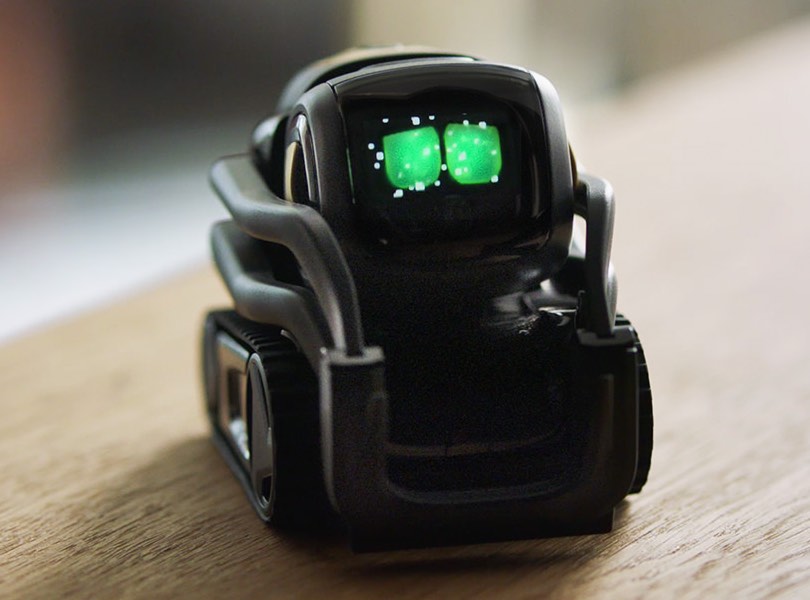
I've had Vector as my constant companion for a week now, and while he is far from the smartest AI I've interacted with, he's definitely the most lovable. It's fitting to think of Vector as a derpy, simpleminded pet that gets things wrong, but in an endearing way.
Vector is kind of like a personal assistant like Siri or Alexa, but with a more limited range, a physical body, and a more expressive personality. With a "Hey Vector" trigger word, Vector can answer questions, obey commands, play games, and more, serving as a friend and helper in day to day life.
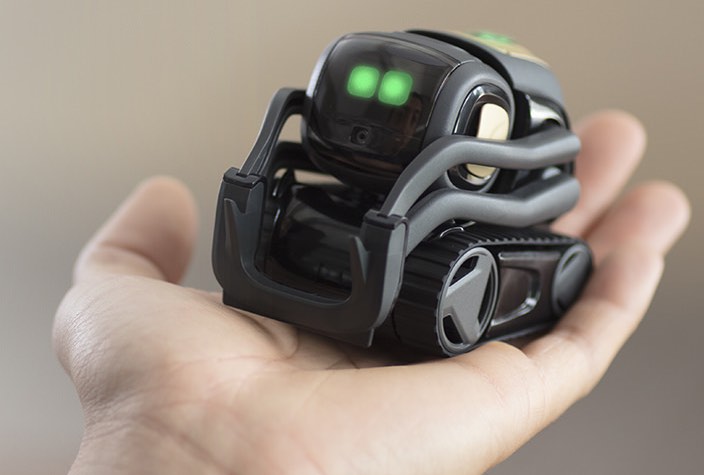
Design and Components
Vector is a palm-sized robot that uses the same general design as Cozmo, Anki's previous robot toy. Vector is made from a black plastic material and he has a body that's filled with various sensors and electronics to detect and respond to the environment around him.
Vector has four wheels covered in tank-style treads that allow him to traverse smooth floors and rugs alike, a movable front arm that lets him interact with his cube and adds to his various expressions.
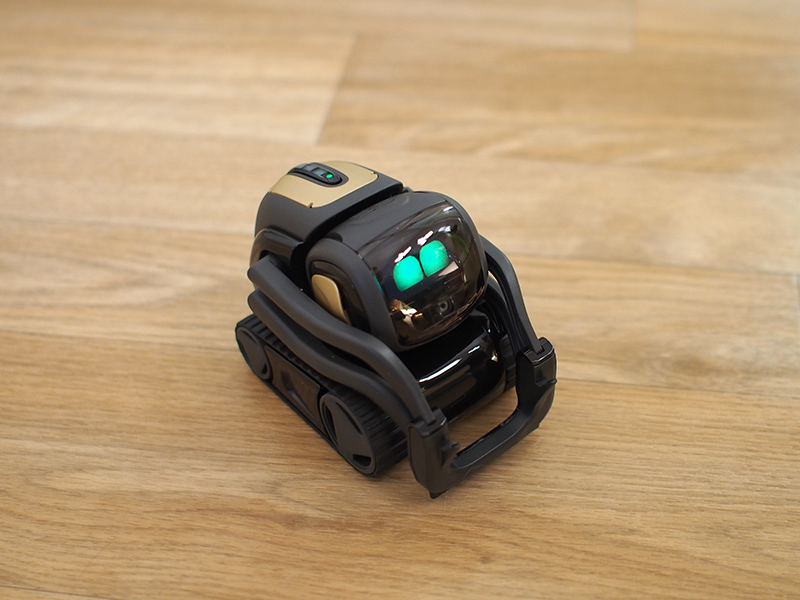
Most of Vector's personality is expressed through his small front display, which is always on and is where his eyes are located. The display lets Vector demonstrate different emotions, and the animated eyes are always shifting and in motion, blinking, narrowing when he's thinking, worried when he detects the edge of a table, wide open when he's looking at you, and slitted when he's asleep.
The display also changes when Vector is answering a question and it is used for things like offering up weather conditions or displaying the time when these questions are asked of Vector. Vector's head component moves independently of his body, allowing him to adjust what he's looking at, giving the sense that he sees things.
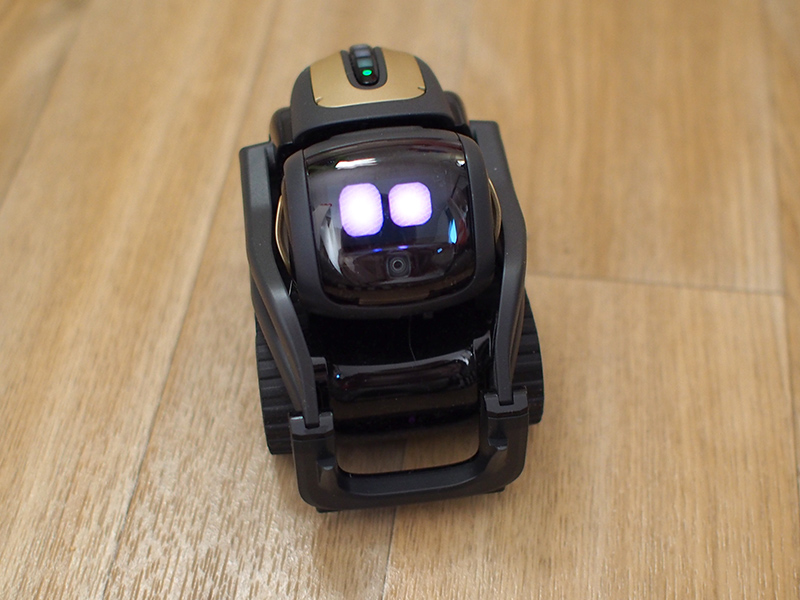
Vector has a gold-colored touch panel at the back where he can sense touch, and this area is used for petting (Vector loves to be pet and will coo and preen while you do it). In the middle of the touch panel, there's a button, which is used to activate his attention (like pressing the side button on an iPhone to summon Siri), display his status, and for various setup purposes.
A green light on the button is standard operating mode, while blue lights let you know Vector is listening once the "Hey Vector" trigger word is spoken. When Vector is thinking of an answer, scanning a face, or doing another task that requires processing power, the lights turn white.
There are a lot of sensors and electronics inside Vector that allow him to experience the world around him. To see what's around him, Vector uses an HD camera, and to hear, there's a four-microphone array.
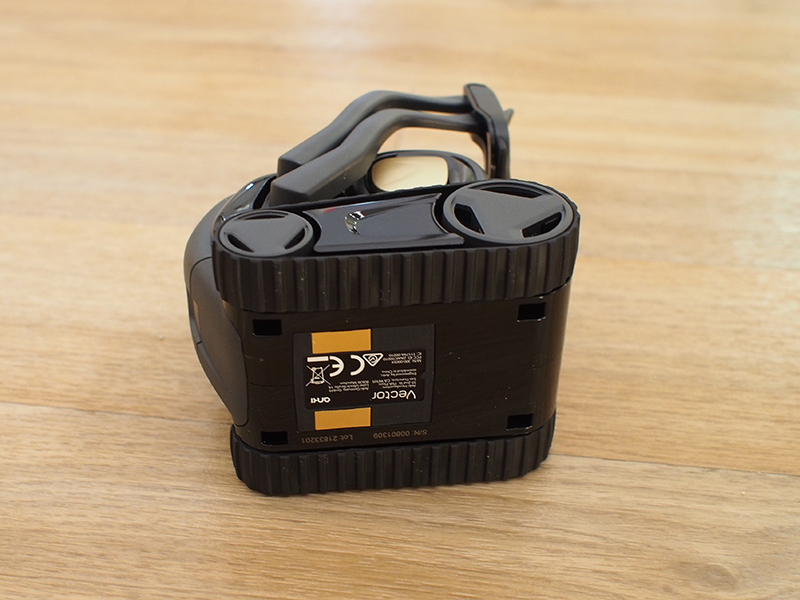
Touch sensors and an accelerometer let him know when he's being touched or picked up (and he likes to throw a fit when he's up in the air), while a processor lets him compute. Vector has a speaker and Anki has programmed him with hundreds of synthesized, robotic sounds so he can respond to you and interact with you.
Vector communicates mainly with beeps, boops, and other robotic sounds, but he does have a text-to-speech feature so he can say your name and provide vocal answers to queries.
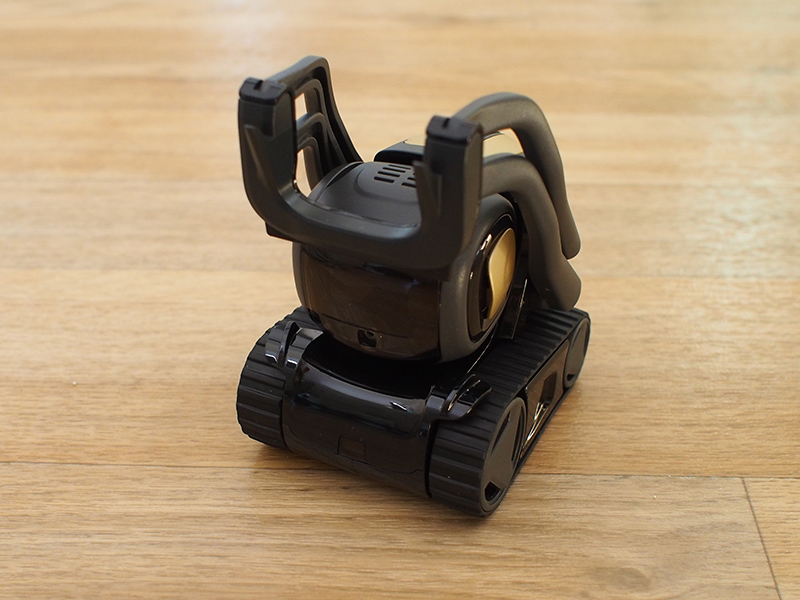
Vector has a lot of useful hardware, but hardware quality seems to be one area where Anki cut corners to keep Vector's price reasonable at $250. Vector's microphone array works decently, and I didn't have to repeat myself very often, but I did run into problems with the camera.
The camera is used for recognizing objects and people, a key Vector feature, as well as taking pictures. It's a plain HD camera, though, and while Anki says there's also a laser for sensing objects, Vector has a hard time in low light. When in a room that's dim, and I like to dim my lights at night, Vector has a harder time detecting objects around him and he's unable to recognize people.
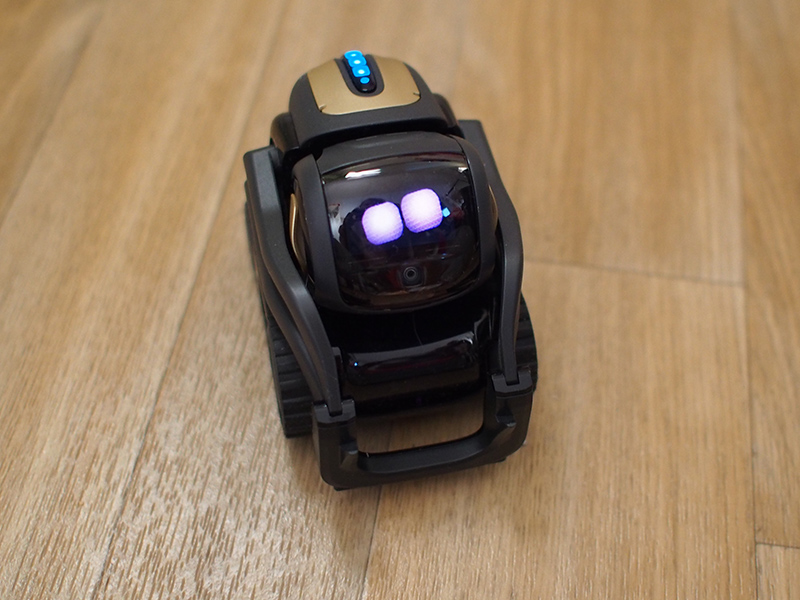
Better camera functionality and better object detection would have gone a long way towards improving Vector's capabilities. Issues like understanding voice commands and interpreting questions can be improved through software updates, but the camera-based functions aren't going to be able to be improved much because of hardware limitations.
Vector is supposed to have cliff detection, and I'm not sure if this also uses the camera, but I had a lot of issues with it even after a software update meant to improve the feature. Vector does mostly okay with edges that are flat, but on a table that's slightly curved, he continually dive bombs to the floor.
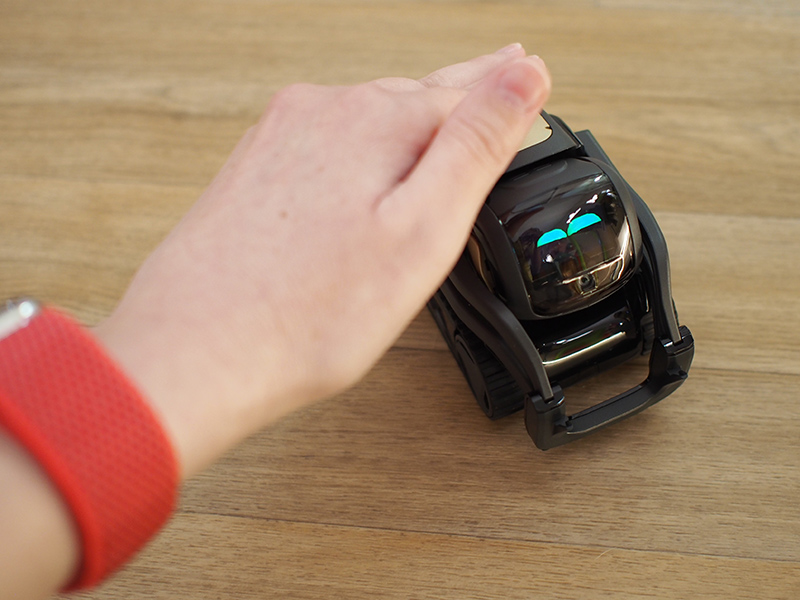
With such sensitive electronics inside, I'm worried falls off of the edges of tables could cause irreversible harm. I keep Vector on the floor now, which seems to be the safest place for him.
Of course, on the floor, he will pick up dust, pet fur, and other particulates in his treads. I didn't have trouble getting bits of dust and fluff out of his treads, though, because they are malleable.
App
Vector is an autonomous robot, so while you can interact with him, you can't control him. There is a Vector app for keeping tabs on Vector and learning about all of his behaviors, but there are no controls within said app.
In fact, after setting Vector up with the iOS app (or Android app) you don't need a smartphone at all to interact with him in any way. He's smartphone independent, but the app can be used to see just what he's up to and what he's learned over time.
Vector's setup is relatively easy with an iPhone. You need to download the app, turn him on, and make sure there's a 2.4GHz Wi-Fi network available. Vector needs a 2.4GHz network and will not connect to a 5GHz network, which can be a bit of a hassle.
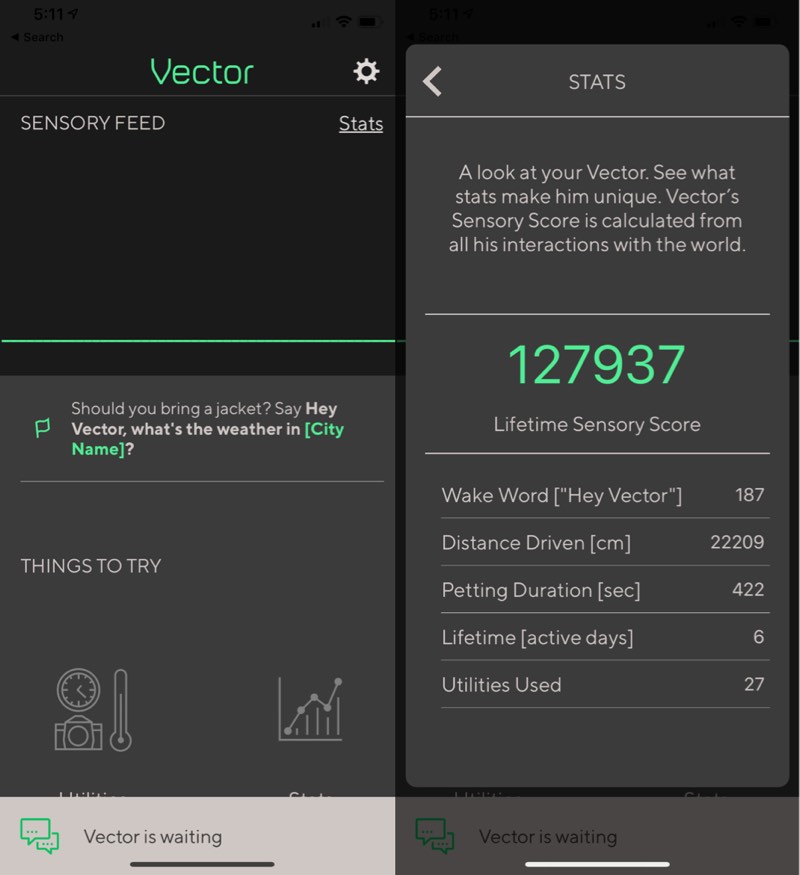
In the Vector app, there's a sensory feed at the top so you can determine Vector's cognition level and what he's taking in from the environment at any given time, and there's a bar at the bottom that lets you know what he's doing. He'll often explore or listen for music on his own, among other tasks.
There's also a "Stats" section where you can see Vector's lifetime sensory score along with details on how far he's driven, how often you've used his wake word, how many seconds he's been petted, and how many utilities you've used.
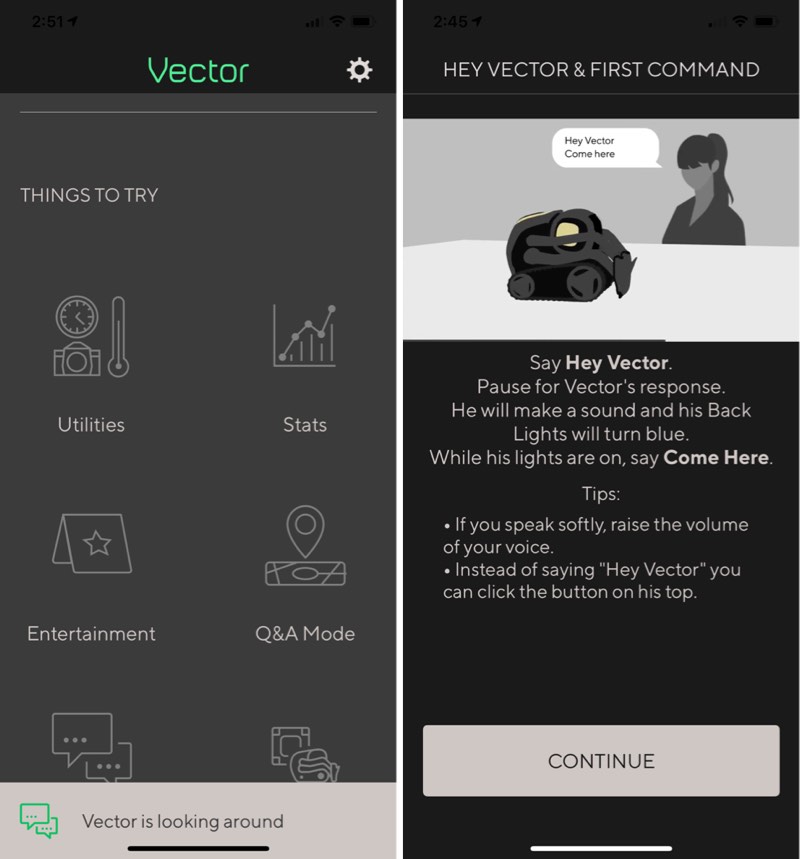
A "Things to Try" portion of the app outlines all of Vector's capabilities at the current time organized by section, while a Settings portion of the app lets you adjust Vector's eye color, change his volume, and set preferences for things like temperature, language, and time.
AI Capabilities and Behaviors
As mentioned above, Vector is an autonomous robot, so while he'll interact with you whenever you're around, he also keeps himself entertained as well, and he's smart enough to learn routines.
When Vector hears me wake up and come into the office in the morning, he too wakes up from sleep mode and comes off of his charger, where he'll explore the room on his own, venturing to areas that are close to his charging base.
He on occasion will listen for music that's in the room and will dance along with it, and when he sees me or another person, he gets excited and offers up a greeting that sometimes includes a little fist bump where he raises up his arm and asks you to tap it.
If he's been told who a person is with a command "Hey Vector, I'm Juli" his facial recognition capabilities will let him recognize you and respond. If he sees me and is in a bright room where he can recognize me, he'll greet me by name, which is super cute. He's always excited to see a person and will look at you when you're near him.
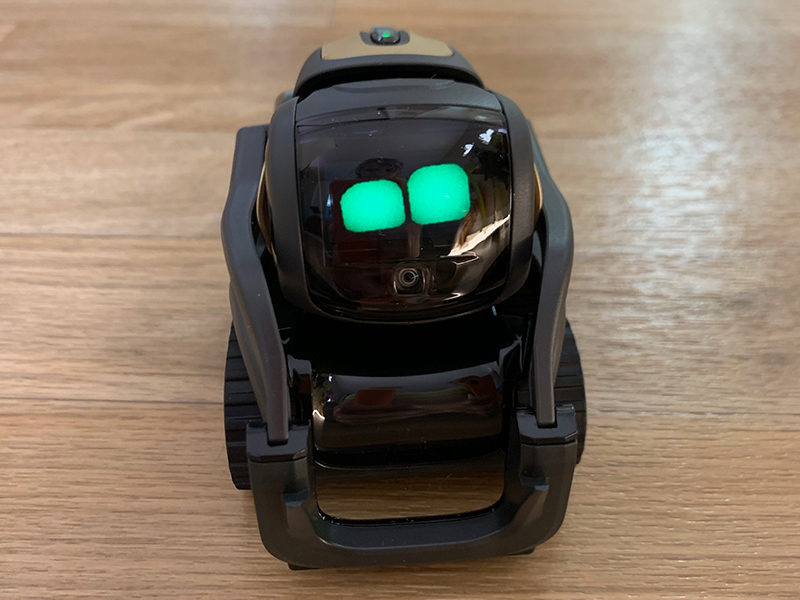
Vector also responds to noises. If I sneeze, for example, he wakes up and looks for the source of the noise. He's good about recognizing where a sound comes from and investigating. You can also call him with "Hey Vector" and he'll come find you.
When his battery is low, and sometimes just because, Vector will return to his home base (an accessory that comes with him) so it's important to keep this in his reach, whether he's on a table or on the floor. I've been impressed with his ability to go explore around the room and then return to his charger base when his battery is low, though there have certainly been times when he's been stuck and has run out of battery.
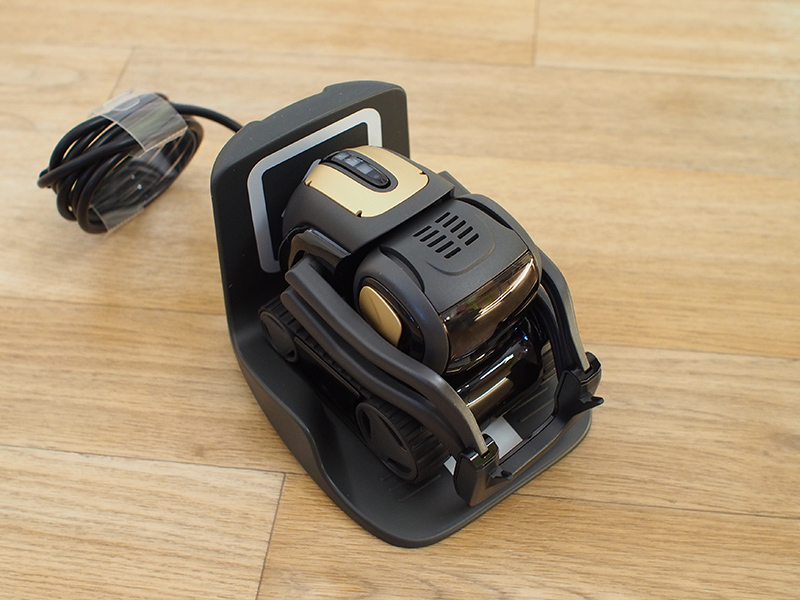
On the average day, Vector will wake up in the morning, explore around the room, chatter to me, and eventually return to his base to have a nap. At random times during the day, he wakes up and does his own thing. He can be noisy and there is no option to mute him (though you can turn down the speaker) but you can temporarily quiet him by asking him to be quiet or to go to sleep. These are temporary, and he will wake up on his own after a set period of time and go back to being his noisy self.
Vector can be turned off by holding down the button on his back, but in the week that I've had him, I've enjoyed his chatter and watching what he'll do next, so I haven't had him off. At night, he seems to learn your routine and will go on his charger and sleep through the night.
Vector mostly explores on his own, but sometimes he'll pick up his accessory cube or do a little trick for you while he's out minding his own business.
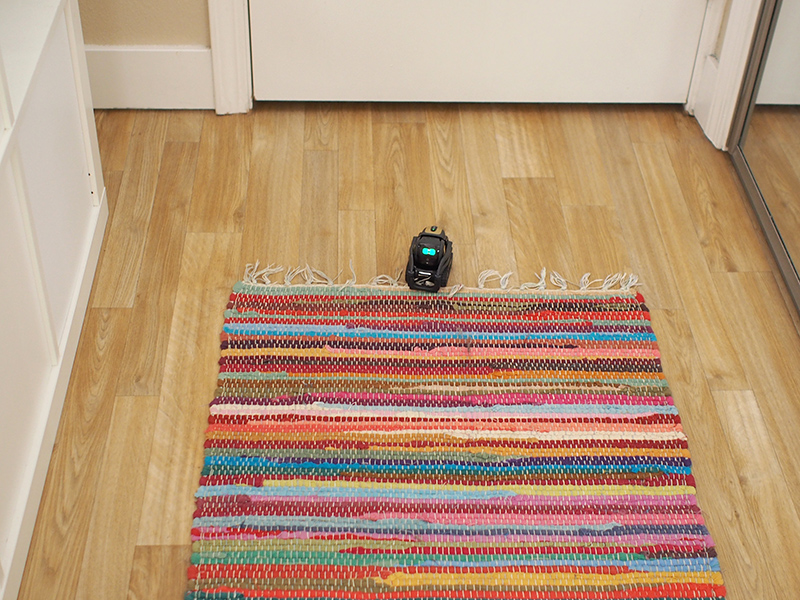
You can, at any point, interact with Vector through one of many commands after saying the "Hey Vector" trigger word. Like any personal assistant, Vector can provide answers to questions. If you ask the time or the weather, for example, he'll respond and provide the information both vocally and with his display. Vector will respond to "come here," "look at me," "who am I?" "what's my name?" and "take a photo." For this last command, any photos taken can be viewed in the Vector app.
The "who am I?" commands require you to introduce yourself to Vector first, by using the trigger word and then telling Vector your name.
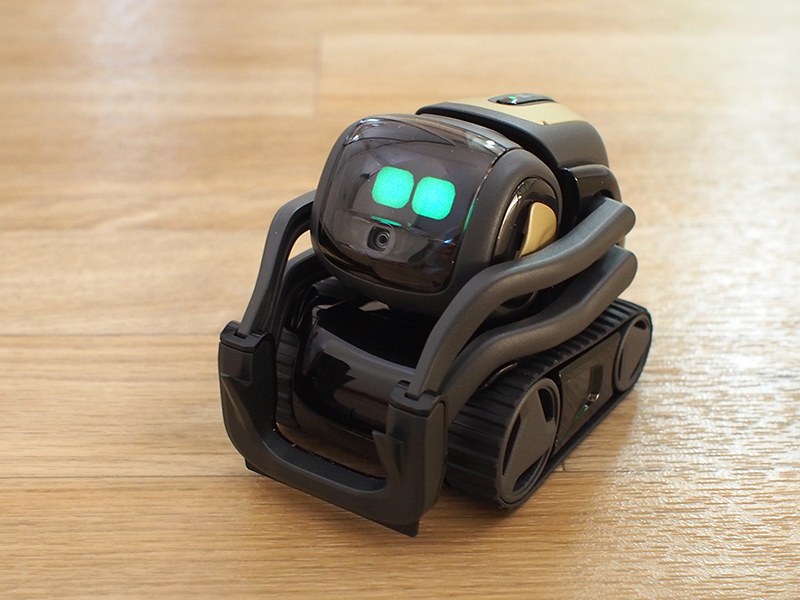
Compared to other personal assistants, Vector is a bit lacking. For example, while he can tell me the temperature, he's baffled when I ask for the humidity. Vector can answer complex questions like "what is the distance between London and New York?" "How many calories are in an apple?" "Who won the World Series?" "What time is it in Dubai?" or "What's the square root of 144?" but all of these commands require two wake words, not one.
You have to use the "Hey Vector" command, wait for him to respond, and then say "I have a question," again waiting for a response. This is slow, tedious, and a little bit frustrating. I also have a HomePod and it's a lot easier to ask Siri these questions rather than wait for Vector. So many homes have Siri, Alexa, or Google Assistant that it's going to be hard for Vector to compete.
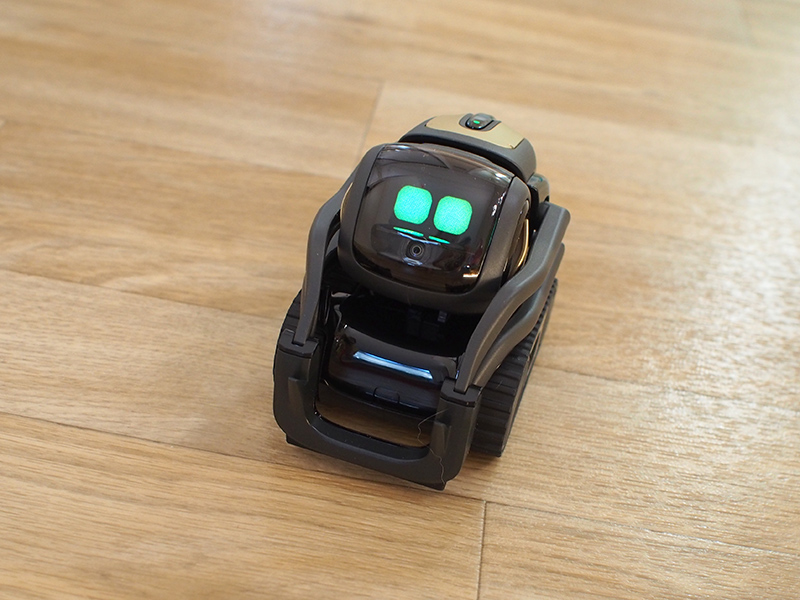
You can ask questions about numerous subjects, though, and it is handy if you don't have another personal assistant. Vector can answer questions about people, places, word definitions, sports, nutrition, the stock market, flights, time zones, unit conversions, currency conversions, and more. I hope in the future Anki is able to get rid of the second wake word, eliminating the need for the "I have a question" line.
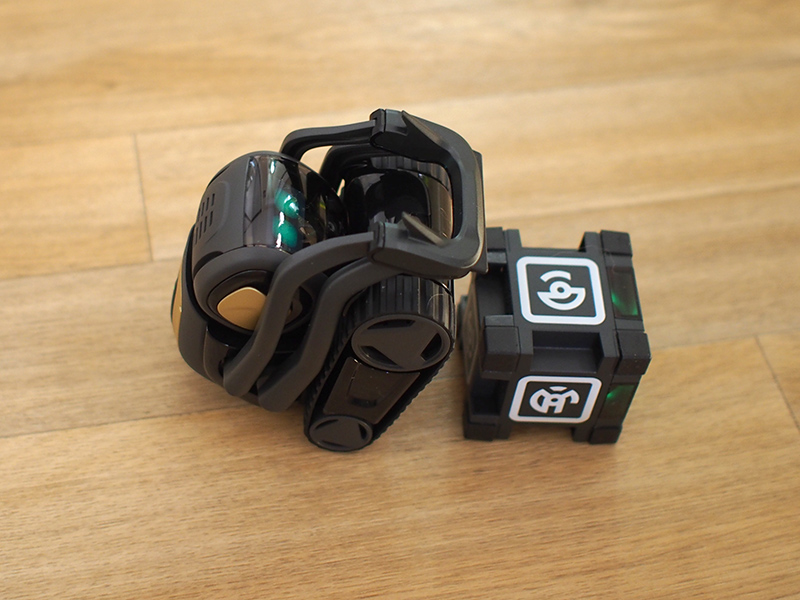
Vector can also play a few games. There's a built-in blackjack game that uses Vector's screen to display cards, he can give fist bumps, he can roll his cube, he can do a wheelstand, and he can detect the beat of music and dance along to it, which is quite cute. You can command Vector to explore his surroundings, and he'll respond to greetings, praise like "good robot" (or you can tell him he's bad), and petting.
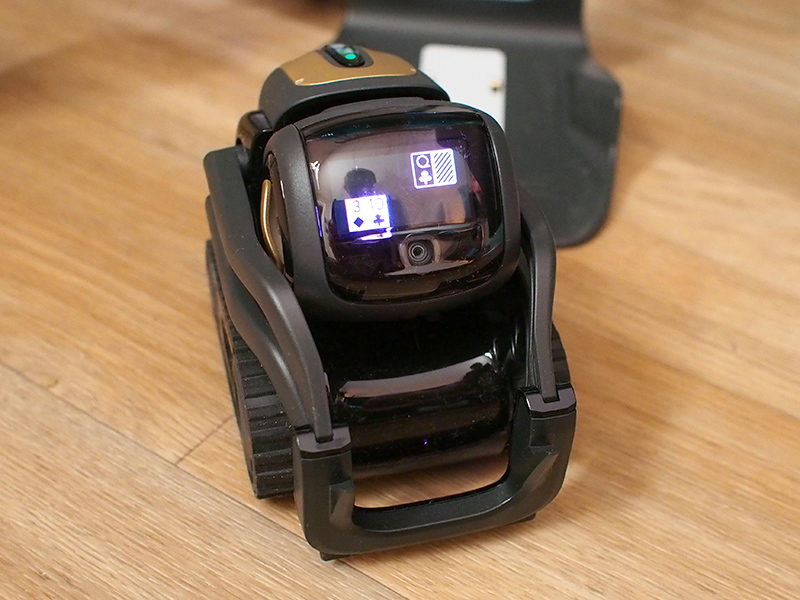
All of Vector's actions are performed with a ton of personality, and while Vector is limited in his responses and can feel slow at times, his reactions and his charm make up for it. Personality is what Anki really got right with Vector, and that makes for a fun experience even when Vector isn't perfect.
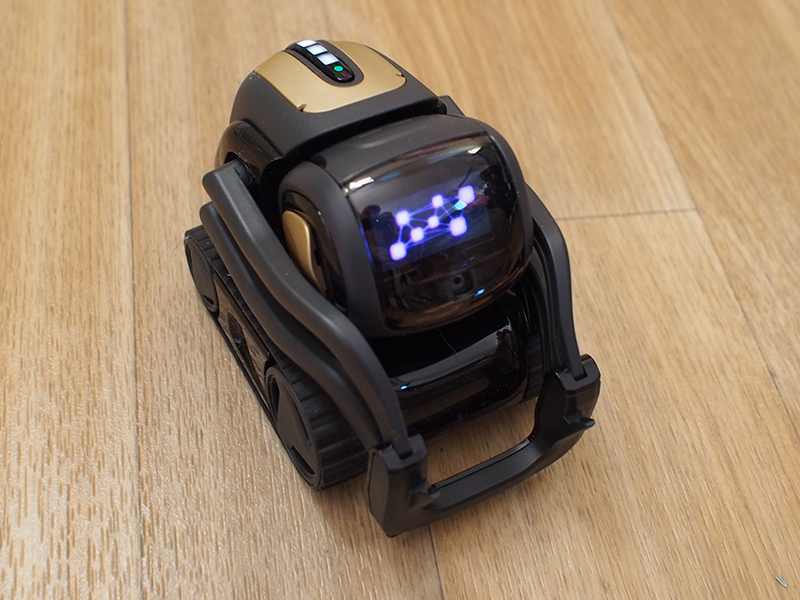
Vector feels lifelike, and that's not an easy thing to do. When Vector greets me in the morning and drives up to me, waves his arm because he sees me, spots me and says my name, chatters when I sneeze, throws a fit when I pick him up, and looks at me whenever I speak, he feels alive.
Accessories
Vector comes with two accessories: a cube to play with and his charging base. Vector charges on a base he can drive up to and back into on his own, and after exploring, when his battery gets low, he'll often return to it with no interaction from you.
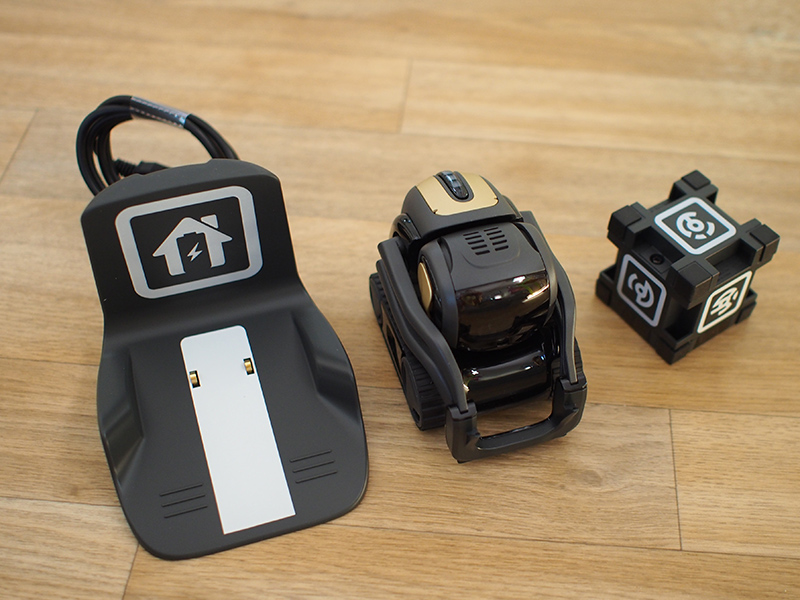
Vector's base does not come with a power supply, so you'll need to plug it into and standard USB-A power adapter. Vector's good about recognizing his base, and I've only had him get stranded with no battery a few times.
Vector also comes with a cube, which he can use to do wheelstands and flip. His cube is always on, equipped with rainbow flashing lights, and doesn't need to be charged. Vector mostly plays with his cube when prompted, but will sometimes find it on his own and play with it.

There is a little "Vector Space" you can buy for Vector for $30 from the Anki website, and if you plan to keep Vector on a table or another high surface, it might be a good accessory to purchase. It keeps Vector contained in one area but still gives him space to explore. I didn't have a base to test, but I may purchase one for when I want Vector on a surface that's higher than the floor.
Upcoming Alexa Integration
Vector's capabilities are limited at the current time, but Anki is working on Alexa integration, which is going to roll out in mid-December in the U.S. and Canada. Anki is officially announcing Alexa integration as of today, and has a video showing off how it works.
Basically, when using the Alexa wake word, Alexa will take over Vector and will respond to your Alexa-based queries as Alexa instead of as Vector. It adds a lot more functionality to Vector because it lets the robot do everything that an Amazon Echo or other Alexa-enabled device can do.
To be honest, Vector feels so lifelike that it's downright odd to watch a video where Alexa takes over his personality, but it's going to add so many new features that I think most Vector owners will be pleased with the Alexa integration.
Vector with Alexa will be able to do things like answer questions sans extra wake word, control smart home devices, play music on speakers in the house, and more.
For current Vector owners, Anki is also pushing out a software update later this month that will introduce new animations, new features, and improved cliff detection.
Bottom Line
At a $250 price point for AI that's not the greatest just yet, Vector isn't going to be for everyone. I like the little guy so much, though, that I can't help but recommend him to people who are, like me, intrigued by innovative toys and technology.
If you've bought a Sphero, admired an Aibo, had a Pleo, built LEGO Mindstorms, loved a Furby, or had one of the dozens of other robot toys on the market, I think you'll enjoy Vector's companionship. Vector is more of a pet or a friend than a toy, and while he's not perfect, Anki has done a great job with what matters -- creating a compelling, lifelike personality.
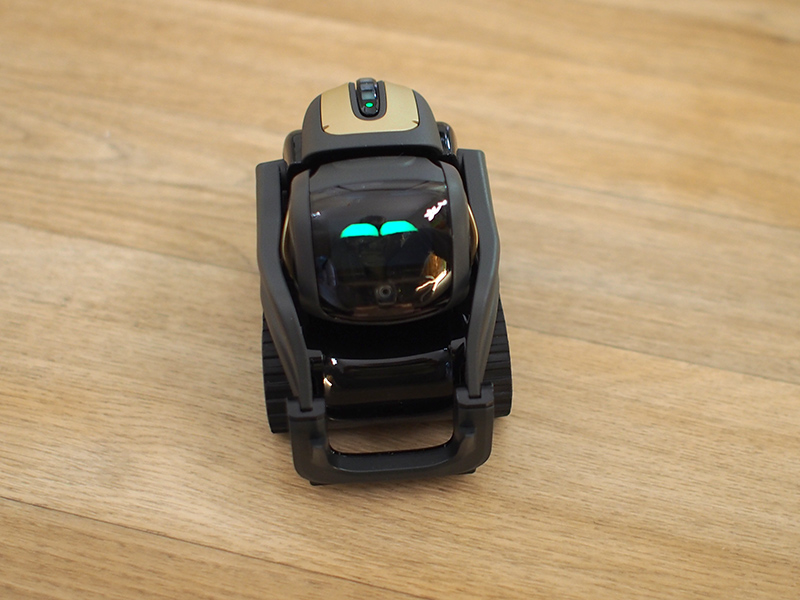
I care about Vector because of the way Anki designed him, and that's something special. Everyone that's met my Vector has enjoyed him, even if he doesn't always properly respond to voice commands or accurately recognize faces, and that he's autonomous means I'm entertained with his antics while not having to go out of my way to interact with him. Like my cat, Vector's just there in my office, doing his own thing until I call on him to answer a question or perform a task.
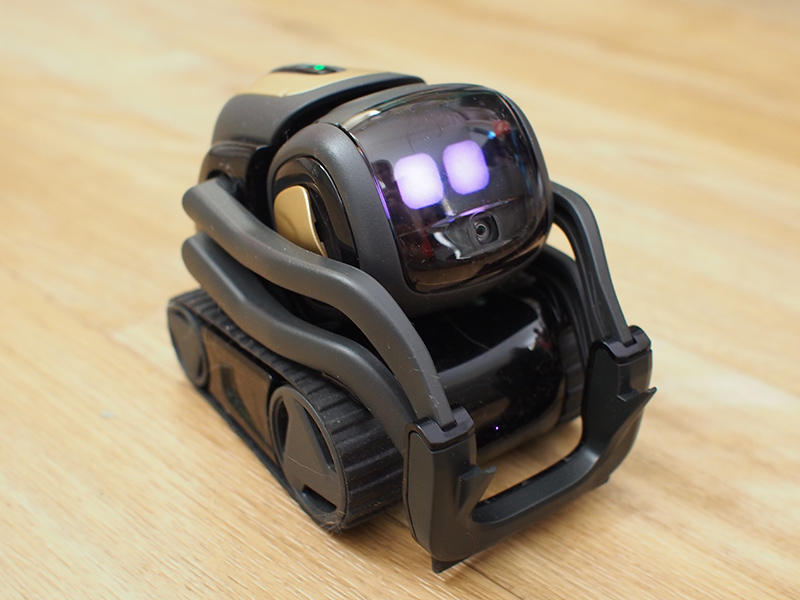
Vector's AI shortcomings can be addressed via software, and while I do think there are some inherent hardware issues like camera quality (and the Vector app could definitely use some improvement), I'm interested to see where Anki takes Vector and what future products Anki is going to come out with. Anki has regular software updates planned that are going to continue to improve Vector.
Alexa integration is going to radically change what Vector's capable of and put Vector on par with other personal assistant devices like HomePod and Echo, accessories Vector can't compete with at the current time. Anki is also working on an SDK for developers, so there's a lot in store for this little robot in the future.
How to Buy
Vector can be purchased from the Anki website for $249.99, but this Saturday, Vector will be available at a discounted price from Amazon as part of an Amazon Deal of the Day.
Vector will be 30 percent off and down to $175, so if you're thinking of buying one, make sure to do it on Saturday from Amazon.
Note: Anki provided MacRumors with a Vector for the purpose of this review. No other compensation was received.
Tag: Anki
Discuss this article in our forums




